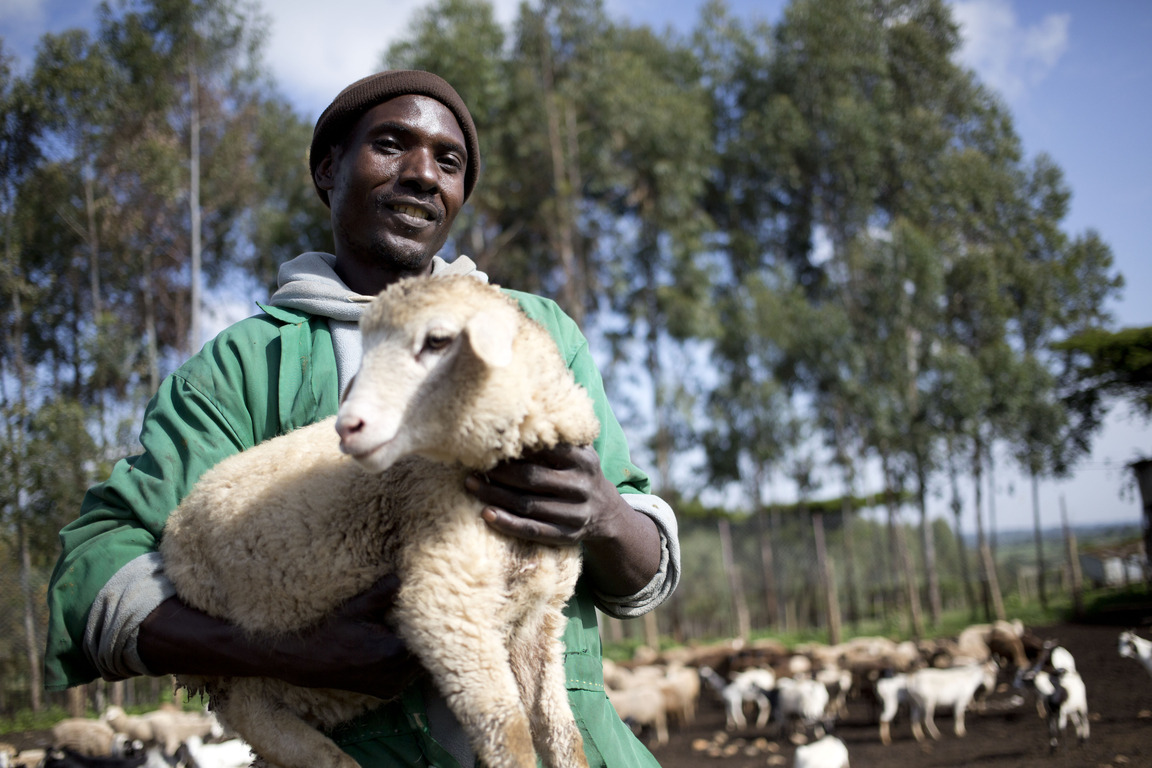Wednesday, 4 October marks World Animal Day, a global celebration of the animal kingdom and a call to action for improved animal welfare. Each year, World Animal Day raises awareness of the challenges facing animal welfare – from the trade in wild animals to stray and homeless pets – as well as the initiatives working to combat these problems.
Well-maintained animals are not only healthier and happier but also more profitable. By living longer and suffering from fewer diseases, they can save their owners considerable sums in medicines, veterinarian bills and the need to purchase or acquire new animals. Healthy livestock also produce more meat, milk or eggs over their lifetime, increasing the productivity and efficiency of livestock businesses. Whether it’s a cattle ranch in Kenya or a backyard chicken coop in India, it pays – quite literally – to invest in animal welfare.
Barriers to livestock welfare
Unfortunately, many of the 900 million people working in small-scale livestock production across the Global South lack access to the resources to improve the health and wellbeing of their animals. Limited private sector investment in lower- and middle-income countries, together with the challenges of reaching remote rural communities, mean that the high-quality animal health products commonplace in Europe and North America are often rare or non-existent elsewhere. Demand is instead met, if at all, by unregulated products and counterfeits of uncertain quality.
All of this means that producers in Africa and South Asia often have no choice but to rear health-impaired or disease-prone livestock. The owner of a backyard chicken coop in India knows that an outbreak of Newcastle disease could wipe out his or her entire flock, but may lack the funds to vaccinate their animals. A Kenyan cattle herder, meanwhile, may have limited access to vaccination services against Rift Valley fever, a destructive zoonotic disease endemic in Africa.
Locked into unprofitable business models, small-scale farmers are unable to expand their enterprises, pay for medical bills or, in some cases, even send their children to school. For the 600 million people whose diets are centred around livestock, the loss of these animals to disease can also jeopardise their food and nutrition security. Poor animal welfare holds back not only individuals, but families and entire communities.
Supporting healthy livestock
Improving animal health, especially through the creation and distribution of new and improved vaccines is critical. For example, an affordable, thermostable and easily administered vaccine against Newcastle disease was developed, specifically designed to benefit the poor and hard-to-reach livestock producers currently underserved by the private sector. Since 2010, 264 million doses of this vaccine have been sold to more than three million small-scale poultry owners in Africa and South Asia, transforming their lives and livelihoods.
The development of a safe and effective concurrent vaccine against Rift Valley fever and two other important ruminant diseases are also in its final stages. Once approved for sale, this vaccine will enable more frequent and regular administrations of Rift Valley fever vaccinations, reducing the risk of outbreaks and strengthening rural livelihoods.
To ensure game-changing products like these reach small-scale producers in Africa and South Asia, GALVmed is also supporting animal health companies to invest in the Global South. Whether by providing the private sector with much-needed market data, facilitating public-private partnerships or helping governments to develop robust policies, GALVmed works to create an enabling environment for animal health products and an essential bridge between product developers and livestock producers.
Prosperous and sustainable animal health markets
Livestock producers throughout Africa and South Asia, no matter how small-scale or remote they may be, must be able to access and benefit from the same range and quality of animal health products as their counterparts in the Global North.
Animal welfare is the foundation all these efforts must be built upon. World Animal Day is an opportunity to celebrate the power of animal welfare to transform the lives of those who depend on livestock. By providing small-scale livestock producers with the resources and support they need to care for their animals, GALVmed and its partners are supporting the economic development and empowerment of individuals, families and communities across Africa and South Asia.




Comments
Interested in investing animal husbandry